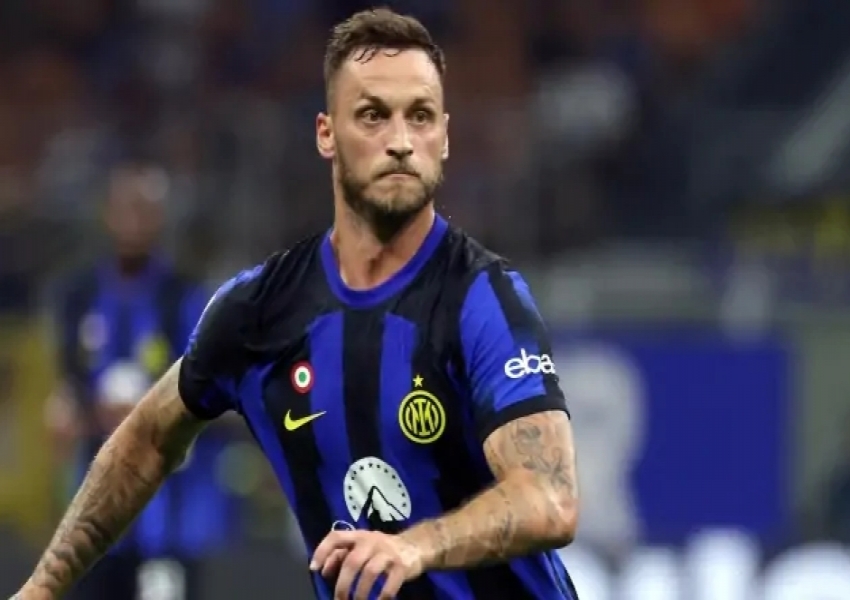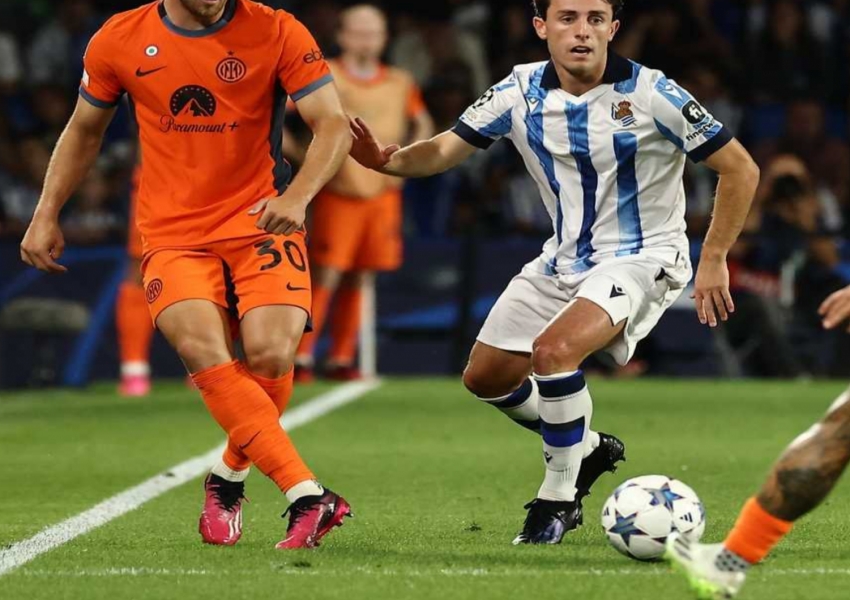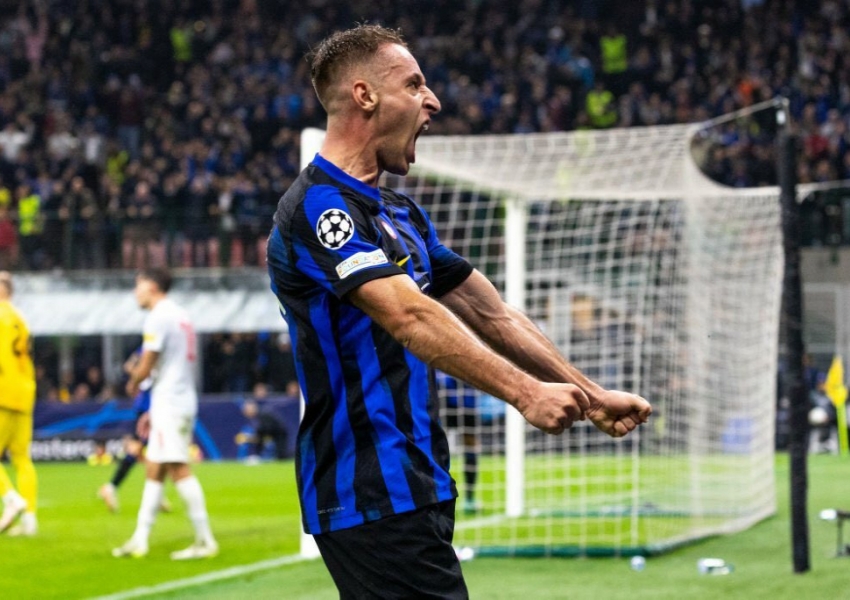Detailed Analysis of Inter Milan's Four Loan Players' Buyout Conditions: Half a Billion in Expenditure, 13 Million in Income Prospects
Inter Milan recently held their annual board meeting, during which several significant announcements were made. Among these, Inter revealed that they are largely abandoning plans to renovate the San Siro stadium and will instead submit a proposal by April next year to build a new stadium in the town of Rozzano. If the local council does not delay the process as the Milan city government did, construction could commence soon. Additionally, Inter announced plans to sue sponsors who have withdrawn support, seeking compensation. An annual highlight of the board meeting is the disclosure of specific costs associated with player acquisitions, with details often emerging only after these meetings. For instance, the transfer fee for Alessandro Bastoni was eventually revealed to be €31 million, and a series of low-profile transactions involving youth players generated over €20 million for Inter, helping them comply with Financial Fair Play (FFP) regulations.

This year's board meeting was no exception, with Inter disclosing several player transaction details. For instance, Romelu Lukaku's loan fee for last season was €7.86 million, while Raoul Bellanova's was €3.116 million. Notably, it was also revealed that Marcus Thuram's transfer this season involved an €8 million expense, including commission and training fees, contrary to earlier reports of a free transfer.

A key focus of attention was the specific terms of the buyout clauses for several loaned players. The first player is Marko Arnautović, an experienced Austrian forward who joined Inter on loan. His buyout fee is €8 million, with the clause being triggered if Inter earns their first league point after February 5, 2024. The second player is Carlos Augusto, a Brazilian international wingback. His buyout clause is not a mandatory purchase but is contingent upon Inter qualifying for European competition (Champions League, Europa League, or Conference League) for the 2024-25 season. The third player is Davide Frattesi. Inter announced that Frattesi’s buyout clause will be activated after February 2, 2024, provided certain unspecified conditions are met. These conditions likely involve the team earning points and the player making appearances. Given these stipulations, it is highly probable that all three buyout clauses will be triggered, effectively making them mandatory purchases.

Some might wonder why Inter sets up these transactions as loans with conditional buyouts rather than outright purchases. The primary reason lies in FFP compliance considerations. Under current FFP rules, a mandatory buyout is treated as an outright purchase, meaning the expenditure is accounted for immediately upon the agreement. However, with a loan-to-buy arrangement, the expenditure can be deferred, which is crucial for passing FFP scrutiny. The FFP assessment period typically runs from the close of the summer transfer window to the start of the Champions League. Adding several tens of millions in expenditure (the buyout fees for the three players total nearly €50 million) could jeopardize Inter's compliance. By structuring the buyout clauses to activate upon earning the first point in February, Inter can theoretically avoid immediate recognition of these costs, thereby aiding in FFP compliance. Although it seems unlikely for Inter to fail to earn a single point by February, the possibility allows FFP auditors to defer the expenditure to the next review period. This timing difference helps Inter pass FFP without incurring fines. Inter’s sporting director, Piero Ausilio, often humorously refers to himself as a "master of certain European affairs," alluding to his adept handling of FFP compliance, accounting, and audit procedures.
In addition to the aforementioned three loan players, Inter also disclosed the buyout clause for Joaquín Correa, who is on loan to Marseille. If Marseille qualifies for the 2024-25 Champions League, the buyout clause will be activated. However, given Marseille's current poor form, sitting 9th in Ligue 1 and far from the Champions League spots, Inter fans will be hoping for a turnaround in Marseille's fortunes to secure the €13 million buyout fee.
The Financial Impact of Loan-to-Buy Agreements
The financial strategies employed by Inter Milan in structuring loan-to-buy agreements are not merely about compliance with FFP but also about maintaining flexibility in financial planning. By deferring substantial expenditures to later periods, Inter can manage their cash flow more effectively, aligning significant outlays with potential income from competitions like the Champions League.
For instance, the €8 million buyout clause for Arnautović is cleverly tied to a seemingly inevitable event—earning a single league point after February 5. This arrangement virtually guarantees that the buyout will occur, yet allows Inter to spread the financial burden across two fiscal periods, thereby smoothing out their financial statements.
Similarly, Carlos Augusto's conditional buyout based on European qualification ties the club’s spending to their success on the field. If Inter achieves their European goals, the revenue from participation in these competitions will help offset the buyout costs, making the expenditure more manageable. This strategic financial planning demonstrates Inter's sophistication in navigating the complex landscape of modern football finance.
The Role of FFP in Shaping Transfer Strategies
Financial Fair Play regulations have significantly influenced how clubs operate in the transfer market. Designed to prevent clubs from spending beyond their means, FFP has forced clubs to adopt more creative and strategic approaches to player acquisitions. Inter Milan’s recent board meeting highlighted just how critical these regulations are in shaping transfer policies.
By employing loan-to-buy deals with conditional buyout clauses, Inter can remain competitive in the transfer market while adhering to FFP guidelines. This approach also provides a safety net, allowing the club to avoid immediate financial commitments and defer them to more favorable periods.
The case of Davide Frattesi illustrates this well. His buyout clause, activated by "specific conditions" after February 2, 2024, provides Inter with the flexibility to assess his performance and impact on the team before committing to a permanent transfer. This method not only mitigates financial risk but also ensures that the club's investments are justified by on-field performance.
Strategic Financial Management and Future Prospects
Inter Milan’s adept handling of their financial obligations, particularly under the stringent conditions imposed by FFP, underscores their commitment to sustainable growth. The board meeting's disclosures provide a glimpse into the club's meticulous planning and strategic foresight.
The potential €13 million from Correa's buyout clause, contingent on Marseille’s Champions League qualification, adds another layer to this strategy. Although Marseille’s current form makes this outcome uncertain, the clause represents an opportunity for Inter to benefit financially from player loans, further showcasing their strategic acumen.
Inter's focus on constructing a new stadium in Rozzano is another testament to their long-term vision. Moving away from the San Siro, a historic but aging venue, to a state-of-the-art facility will not only enhance matchday revenues but also provide a modern environment for fans and players alike. This project, if approved and executed without delays, will be a significant milestone in Inter’s quest for financial stability and competitive excellence.
The detailed analysis of Inter Milan’s loan-to-buy agreements reveals a club deeply engaged in strategic financial management. By leveraging conditional buyout clauses, Inter can navigate the complexities of FFP while maintaining flexibility in their financial planning. The upcoming construction of a new stadium and the potential income from player buyouts further highlight the club’s commitment to sustainable growth and long-term success.
Inter Milan’s board meeting not only shed light on their immediate plans and financial strategies but also provided a broader understanding of the club's vision for the future. As they continue to balance competitive ambitions with financial prudence, Inter’s approach serves as a model for other clubs navigating the intricate landscape of modern football finance.
Copyright Statement:
Author: mrfootballer
Source: Mrfootballer
The copyright of this article belongs to the author. Reproduction is not allowed without permission.
Recommended Blog
- Inter Milan on the Edge Under UEFA's New Regulations: Expect More Brozović-like Deals
- Inter Milan Leaves Behind the "Loose Reins" Era: Coach Rejects Stars, Four Reasons Boost Prestige
- The Zhang Kangyang Era at Inter Milan: 15 Major Free Transfers and New Hot Prospects
- German Cup Round 2 Preview: Stuttgart Shouldn't Abandon the Cup, What About Leipzig's Defense Intentions?
- Inter Milan’s Late-Game Prowess: Blessing or Curse? Analyzing the Challenges and Strengths
- Beyond Four Records, Inter Milan's Greatest Gain: A Heartwarming Tale of Rivalry and Respect Between Two Stars
- Lukaku Ignites Inter Milan's True DNA: The Disappearance Saga that Angered Two Leaders
- La Liga Round 11 Preview: Can Real Madrid Win the First Clásico? Almería in Dire Straits
- Bundesliga Round 9 Preview: Can Bochum’s Season Start in Round 9? Stuttgart’s Offensive System in Full Gear
- Champions League Group F Round 3: PSG's Possession Struggles and Newcastle's Attack Power
Hot Blog
- Champions League Quarterfinals Set: Arsenal Crush PSV 9-3, Villa Dominate Brugge 6-1! Real Madrid vs. Arsenal Confirmed
- Champions League Drama: Rare Penalty Violation! VAR’s Eagle Eye Turns 60,000 Cheers to Silence
- Vinícius Jr. Misses Crucial Penalty as Atlético Fans Erupt – Bellingham Offers Consolation in Madrid Derby Thriller
- Real Madrid Survive Atlético Thriller: Win 4-2 on Penalties to Set Up Quarterfinal Clash with Arsenal
- 1-4! 0-4! A Dark 24 Hours for Chinese Football – Shanghai’s Giants Humiliated and Eliminated from the AFC Champions League
- 4 AM Showdown: Manchester United’s Do-or-Die Battle – Defeat Means Elimination and a Trophyless Season
- Man City’s 21-Year-Old Star Returns Home as a Hero! Receives $350,000 Mercedes, Gifts It to His Father
- AFC Champions League Quarterfinal Draw: Yokohama Faces CR7! Two High-Stakes Clashes as Japan’s Duo Battle in the Bottom Half
- Barça Unleashed: 26-Minute, 4-Goal Comeback Stuns Atlético as Flick’s Masterclass Makes History
- A Night of Triumph and Heartbreak: Barça’s Epic Comeback, Liverpool’s Cup Final Agony, and Leverkusen’s Stunning Reversal